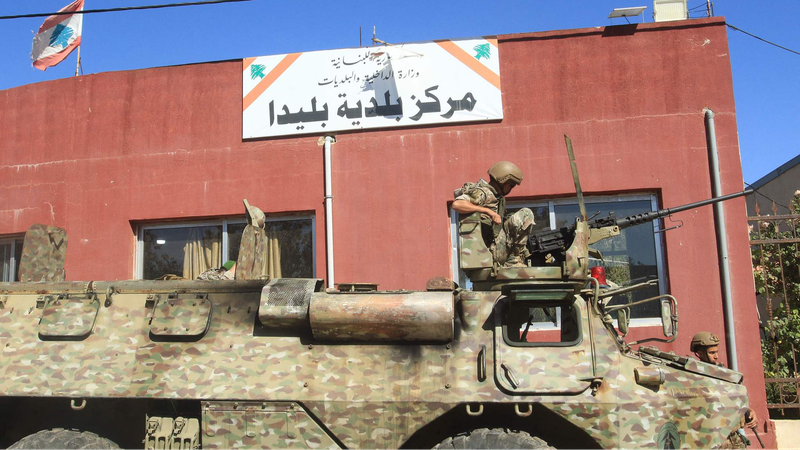Lebanese President Joseph Aoun on Thursday ordered the country’s army to confront any Israeli military incursions into southern territory, following a deadly dawn raid on the border village of Blida.
At around 1:30 a.m. on Wednesday, an Israeli force advanced more than one kilometer beyond the border, storming the Blida municipal building. According to Lebanon's National News Agency, municipal employee Ibrahim Salameh was shot and killed before the troops withdrew by 4 a.m.
The Israeli military confirmed the overnight operation, stating it “opened fire after identifying an immediate threat” during what it described as a mission to destroy Hezbollah infrastructure. The incident is now under review, the army said.
Speaking from Baabda Palace alongside Commander of the Lebanese Armed Forces Rodolphe Haykal, President Aoun condemned the attack as part of ongoing Israeli aggressions. He urged the ceasefire monitoring committee to move beyond documenting violations and take concrete steps to pressure Israel to honor the November 27, 2024 ceasefire agreement.
That US- and France-brokered deal largely halted direct clashes between Hezbollah and Israel after months of hostilities in the Gaza region. Yet Israel maintains five main positions along the border and continues occasional strikes, citing security threats from Hezbollah.
This directive marks a shift from passive monitoring to active defense, raising questions about how the Lebanese army will respond if future breaches occur. For a region on edge, every border flare-up tests the limits of diplomatic agreements and military deterrence.
As President Aoun’s orders take effect, the world will be watching: can this show of force deter further violations, or will it risk drawing the region back into a cycle of escalation?
Reference(s):
cgtn.com



